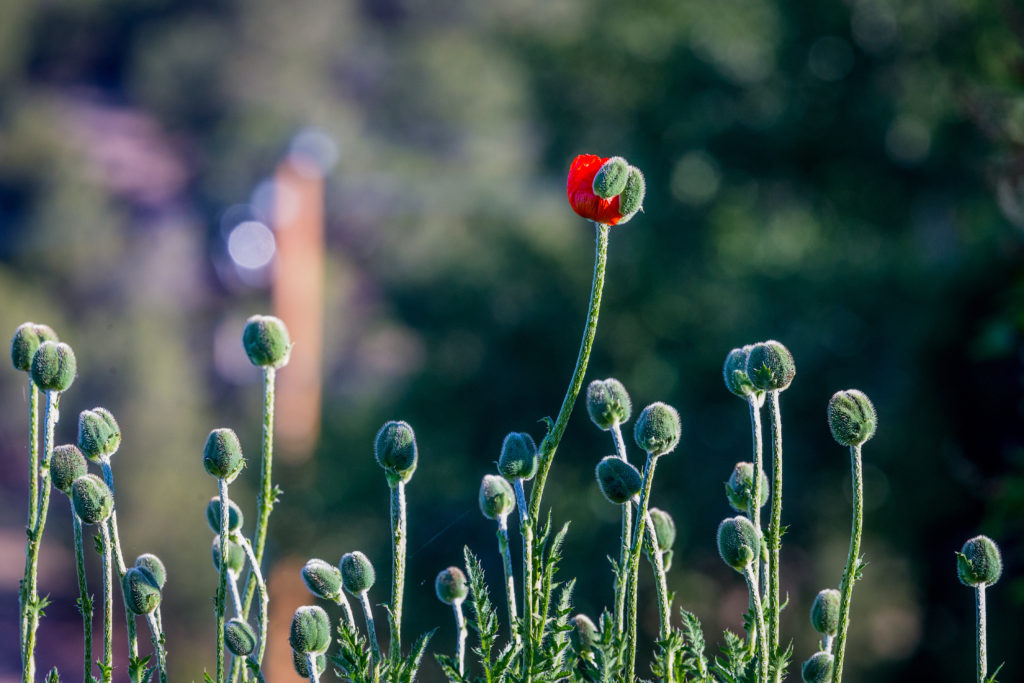Last week, I wrote about the death of a colleague. In addition to grieving, I’m learning a lot about intimacy.
So often when I think about intimacy, it’s in the context of a romantic relationship, but the truth is, intimacy is not confined to a romantic partner. Real intimacy is like unzipping yourself and displaying your insides, and that can be done with anyone, something I’ve witnessed in this process.
As I share the news about my co-worker’s death, people react in different ways. Some people allow me to cry without offering a diversion or attempting to fix it. Other people become discomfited and say a quick, “I’m sorry,” before moving on to another topic. I’m not deriding people for their reactions – people are where they’re at and will respond how they do. What I notice though is in order to share my feelings with someone else, to be intimate with them, I have to acknowledge my feelings first. If I’m uncomfortable feeling sad, there’s no way I can share that with someone else because I’m shutting the feelings down internally. Someone else may be more than willing to share and connect with me, but if I’m not connected to myself, no one else can connect with me either.
We hear often, “You can’t give what you don’t have,” but I’m a concrete gal and I like examples. As an example, if someone asked me for oranges right now, I’d have to shake my head and say, “Sorry, I don’t have any.” Similarly, I can’t give intimacy if I don’t have it internally.
We think of intimacy and love as “out there,” something to find or force. I can’t tell you how many times I’ve complained about certain men in my life, lamenting that they’re not opening up, as if they were clams I could pry open. I’ve craved intimacy, but it’s only been within recent years I’ve created it internally by embracing all of my emotions. By giving myself space to feel.
Love and intimacy get presented as if we could walk into a store and buy them. We don’t realize intimacy is something we create, something we work on internally. I could be in relationship with the most amazing person, someone who loves intimacy, but if I’m not in touch with my own feelings, if I’m not allowing myself to feel them, we won’t have intimacy. It will be like talking to a brick wall. I say this because that’s also been my experience in grieving. When I share my insides with people who are discomfited, it’s like I threw an egg against a brick wall – my insides are smeared, on display. There’s no reciprocity, only impact. When I share my insides with people who are comfortable with emotion, it’s like I threw an egg at a cloud of cotton – I feel held, comforted, and supported.
Matt Licata, a psychotherapist I follow, synthesizes this concept well:
When all is said and done, perhaps there is no secret to co-creating a fulfilling, supportive, mutually beneficial intimate relationship, as it is always in the end a movement of the unknown. Healthy intimacy is not something you will figure out one day by way of some checklist or magical formula, but something you are asked to live in each moment, in all its chaotic glory. By learning to take care of yourself, you are creating a foundation upon which the mysteries of intimacy can come alive within and around you, providing a crucible like no other for the great work of aliveness that you have come here to embody.
I dream of a world where we embody our emotions. A world where we understand intimacy is not something “out there,” but rather “in here.” A world where we recognize intimacy is not something we find, but rather something we create. A world where we realize intimacy beings with us.
Another world is not only possible, it’s probable.
Lately I find myself wading deeper and deeper into the realm of emotion. That may sound funny because people often describe me as “emotional,” but what I mean is instead of flirting with an emotion, I’m embracing it. The despair, the anger, the disappointment. All of it. Not only am I embracing my feelings, I’m also no longer trying to fix them.
For me, whenever I felt really down, or lonely, for instance, I turned to something to make myself feel better: I called a friend, turned on the TV, picked up a book. I’m not saying there’s anything wrong with those activities, but they became compulsions, ways for me to avoid diving deep. To avoid the emotional pain of fully embodying my emotions. These days I’m learning to sit with my feelings, no matter what they are.
Matt Licata, a psychotherapist, has a blog I read every couple of weeks. In one blogpost he wrote:
[T]he question during these times is: Are you going to use these reorganizing and shattering experiences as vehicles though which to befriend yourself, to attune to the unprecedented flow of feeling with you, and to weave a sanctuary for the wisdom-pieces of the broken world to be held and illuminated? Or, will you fall back into your habitual, conditioned history, attack yourself, your tenderness, and your sacred vulnerability, spinning into the habitual fight-flight urgency of shame, blame, resentment, and self-aggression?
In another he wrote:
The invitation is into intimate communion: to move closer, and even closer still, into the feelings, the emotions, and the sensations as they surge. To surround the surging material with curiosity, warmth, and most importantly with kindness, as an inner explorer of the galaxy of your own body, of which there is no temple more sacred.
Communion. Yes, that’s what I long for. And communion means befriending my pain, befriending my sorrow, befriending my disappointment. Every cell of my being longs for love, and that means the pain, the sorrow, and the disappointment too. In my journey toward wholeness, toward the divine, I must embrace everything within me.
In my spiritual practices, we view everything as an expression of an infinite loving consciousness, and that means me too. Not only the me in this physical form, but the internal me as well. The one that feels pain, the one that feels lonely, the one that feels disappointment.
These days I’m practicing loving those parts too and I have that wish for others as well.
I dream of a world where we embrace all parts of ourselves. A world where we feel every emotion as it arises. A world where we sit with our pain because we recognize it, too, is divine.
Another world is not only possible, it’s probable.

